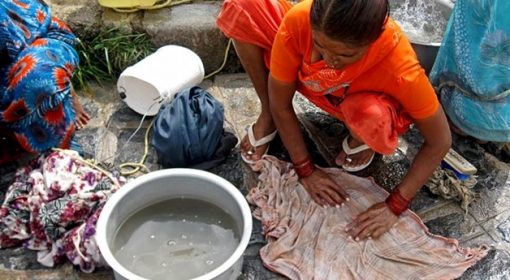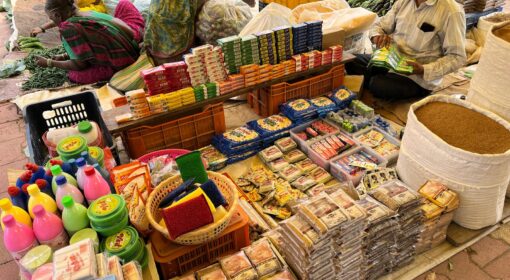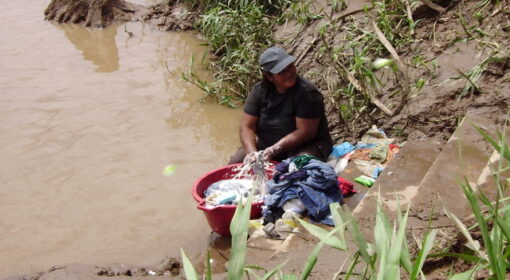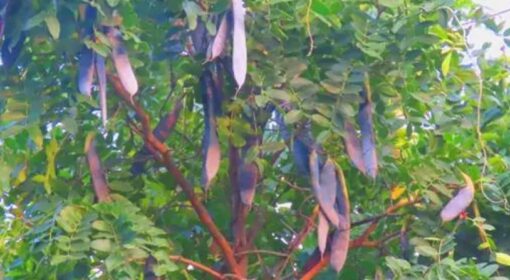By Getachew Engdayehu and Frank van Steenbergen
Washing clothes is key to life and defines hygiene and health. In most of rural Amhara (Ethiopia), clothes are washed manually in rivers or streams, with women often walking long distances. It is a time-consuming, labor-intensive task – adding to the many other family chores and their own agricultural work. In rural areas farmers are every day engaged in laborious agriculture activities. This makes for muddy clothes, demanding heavy physical scrubbing. Heavily soiled clothes need to be washed separately.
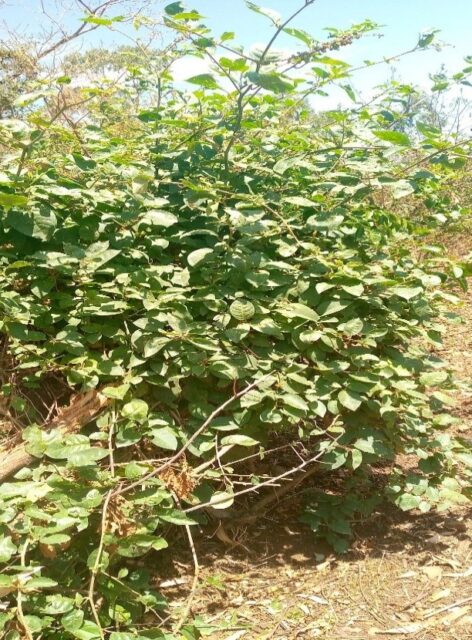
In recent years the price of soap, detergent and washing soda has been increasing more than the income from labor. Affordability has become an issue. To optimize the expenditures on detergents, many rural families in Amhara have returned to the use of homemade botanical soaps. These are prepared from plant leaves and seeds from the African soap berry aka Phytolacca dodecandra. The Amharic name is “endod”.
Endod berries have been used as a soap for washing cotton clothes in Amhara for centuries. Berries are ground either fresh or dry and used directly as soap. People of all ages are familiar with endod for laundry, and for other uses as well. The berries, leaves and roots have many medicinal purposes and can be used for snail control.

The dried fine powder can be stored for years to use in seasons where berries are not available. After crushing, the berries or leaves are mixed thoroughly with water to create a lather. Clothes are soaked and rinsed and then scrubbed on stones or inside a bucket. Though endod is used mostly for traditional cotton clothes, it is widely applied on modern fabric clothes as well.
Based interviews with farm families in Estie and Farta woredas, endod is very popular. It has advantages over commercial soap and other detergents. All Amhara families have traditional cotton clothes used for holidays and special occasions like wedding, epiphany, new year celebration, and for church prayer on Sunday, engagements. These cotton clothes are required to be washed with endod for more aroma, attractiveness, beauty and long-lasting use. These benefits extend to other clothes as well.
Other advantages of endod over commercial soaps include,
- Endod is gentle for hands when washing
- It is good to preserve clothes for long period of time when stored, since cotton clothes are preserved for holidays and especially occasions.
- It can disinfect and control trematodes (flukes and lice), that are common in rural areas and can cause various diseases in humans and animals
- It has multi-dimensional uses beyond laundry; prevents the prevalence of schistosomiasis, and controls mosquitoes and other water- breeding insects.
Moreover, the soap berry plant itself:
- Is quickly regenerating within the landscape restoration programs in Ethiopia.
- Can be grown in wide range of agro-ecologies and is ever green
- Can be widely applied for live fencing since it grows fast is not damaged in free grazing
In summary, clothes washing is a main burden on women and all families in rural Amhara. With this heavy burden, devising different technological interventions to make clothes washing easy should get more attention – in using best practice equipment and detergents. This needs much more attention.
Also, the most effective species of soap berry should be part of the regreening packages. Organizing endod berry collection, grinding, preserving and packing methods is a potential new business line. Developing micro and small enterprises connected with private sector can build up the entire value chain.
